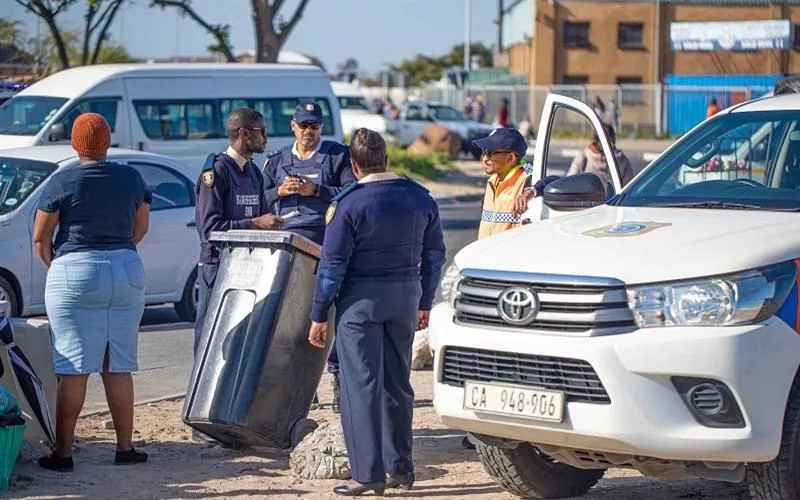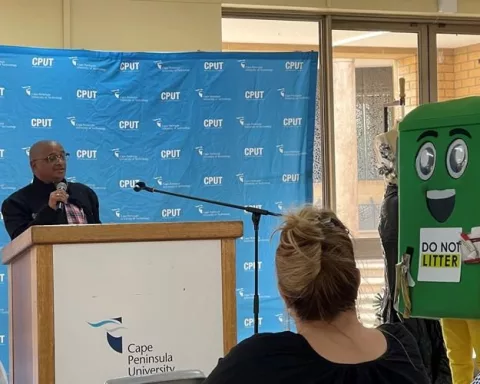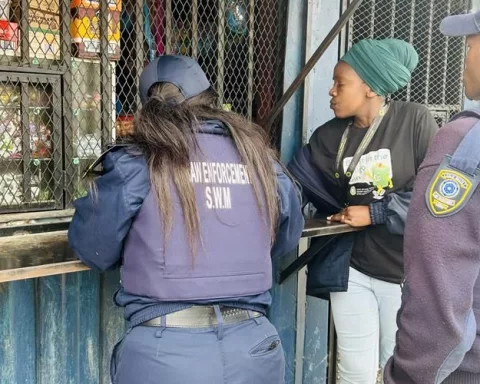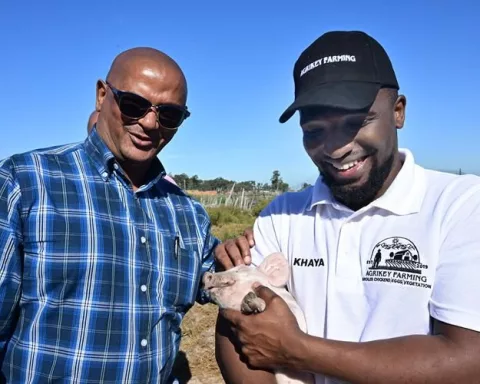In Cape Town, there has been an unusual crime wave of stolen wheelie bins, with a significant increase in incidents from 2022 to 2023. The City Council is urging residents to be alert and conscious, and if a wheelie bin is stolen, it can be quickly replaced by sending an email to wastewise@capetown.gov.za with necessary information. Property owners are also encouraged to provide a sufficient number of bins to avoid overflow and unlawful dumping, which can impact community health and cleanliness.
How to Replace a Stolen Wheelie Bin in Cape Town
Residents of Cape Town can quickly replace a stolen wheelie bin by sending an email to wastewise@capetown.gov.za. The email should contain the municipal account number, home address, the individual’s name, and a contact number. The city will process the request, and a new bin should be delivered within ten working days. In the meantime, the City will pick up bagged waste from the property to ensure uninterrupted waste management.
In the bustling metropolis of Cape Town, a strange predicament has been gaining attention – the escalating occurrence of wheelie bin thefts. A trend began to sprout in 2023, marking an escalation in the count of stolen bins juxtaposed to the preceding year, 2022. Fast on its foot, the Cape Town City Council is encouraging its inhabitants to stay alert and conscious.
The Current Situation
In 2023, a remarkable 29,330 wheelie bin theft incidents were brought to light, a significant surge from the 28,653 cases noted in 2022. This spike in bin thefts has called for action from the City, initiating campaigns to enlighten its citizens on the suitable reactions to such instances and reiterating the need for prompt action.
In the unfortunate circumstance of a resident becoming a theft victim, a replacement can be quickly procured. The necessary steps are uncomplicated, initiated by sending an email to wastewise@capetown.gov.za. The email should include vital information: the municipal account number, home address, the individual’s name, and a contact number. Tenants should also enclose a letter of authority from the landlord or the property manager.
How to Address the Issue
Following the processing of the request, the resident receives a reference number, and a new wheelie bin should be delivered within ten working days. To guarantee that waste management is uninterrupted during this interim, the City undertakes to pick up bagged waste from the property.
For those living in Council rental properties, further guidance on the replacement procedure can be obtained from the nearest housing office. Comprehensive guidelines can also be found in the ‘Replacing a Stolen or Damaged Bin’ brochure, available in English, Afrikaans, and Xhosa languages.
Alderman Grant Twigg, a key figure entrusted with Urban Waste Management, underscores the importance of promptly reporting bin thefts. According to him, such notifications allow the city to take proactive steps to address the issue, assuring smooth refuse collection services.
Additional Measures for Effective Waste Management
Alderman Twigg further lays emphasis on the obligation of property owners to provide a sufficient number of wheelie bins to all residents. He cites that for sizeable households or properties with backyard occupants, it’s vital to have an adequate number of bins to avoid overflow and consequently, unlawful dumping. Additional bins can be requested, contributing to the cleanliness and maintenance of the community.
The procedure for applying for extra bins is as straightforward as requesting replacements. It includes downloading and filling out the Supply of Services Application Form from the City’s website, ensuring all sections related to rubbish removal are completed. Once filled, the form, along with a certified copy of the applicant’s ID, should be handed over at the closest Walk-in Centre or sent via email to wastewise@capetown.gov.za. Tenants requesting additional bins must include a letter of authority from the landlord or property manager.
The Impact on Community Health and Cleanliness
The issue of bin theft, albeit seemingly minor, has broader implications on the cleanliness and health of a community. The City’s initiatives to streamline responses to theft and promote the use of adequate waste disposal facilities are applaudable steps towards preserving the beauty and hygiene of Cape Town. As residents, it’s crucial to stay vigilant and take an active part in maintaining the city’s cleanliness.
What is the current situation regarding the theft of wheelie bins in Cape Town?
In 2023, there were 29,330 incidents of wheelie bin theft in Cape Town, which was a significant increase from the 28,653 cases reported in 2022.
How can a stolen wheelie bin be replaced in Cape Town?
Residents of Cape Town can replace a stolen wheelie bin by sending an email to wastewise@capetown.gov.za. The email should include the municipal account number, home address, the individual’s name, and a contact number. A replacement bin should be delivered within ten working days.
What should tenants include in the email to replace a stolen wheelie bin in Cape Town?
Tenants should include the municipal account number, home address, their name, a contact number, and a letter of authority from the landlord or property manager.
How can property owners ensure effective waste management in Cape Town?
Property owners should provide an adequate number of bins to avoid overflow and unlawful dumping. They can also request additional bins by downloading and filling out the Supply of Services Application Form from the City’s website and submitting it along with a certified copy of their ID.
Where can tenants get more information about replacing a stolen or damaged bin in Cape Town?
Tenants can obtain further guidance on the replacement procedure from the nearest housing office or by referring to the ‘Replacing a Stolen or Damaged Bin’ brochure available in English, Afrikaans, and Xhosa languages.
What impact does the theft of wheelie bins have on community health and cleanliness in Cape Town?
The theft of wheelie bins can lead to overflow and unlawful dumping, which can significantly impact community health and cleanliness. The City’s initiatives to streamline responses to theft and promote the use of adequate waste disposal facilities are crucial steps towards preserving the beauty and hygiene of Cape Town.












